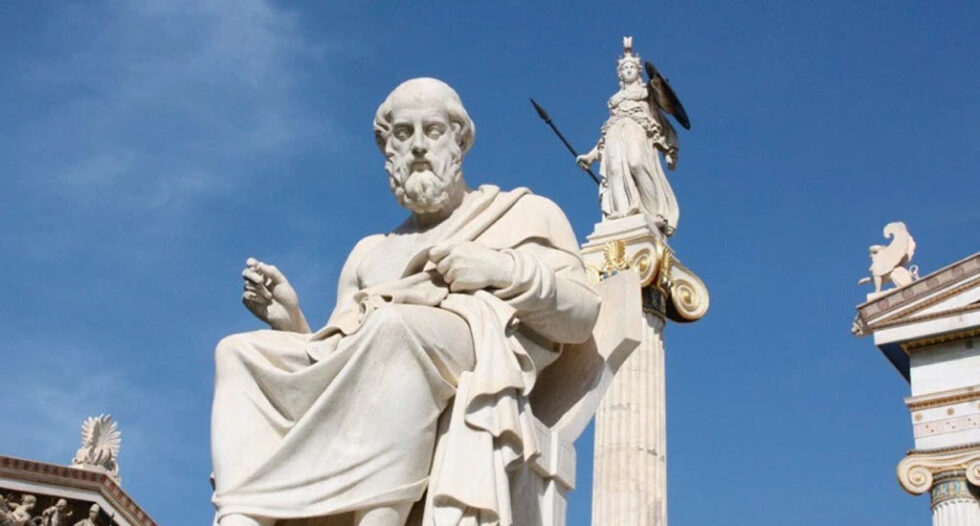
Virginia Republicans are set to recapture the State Senate in a near triumph.
With Virginia’s proximity to Washington, gasoline north of $3.50/gal, and Biden 12 points underwater according to the latest aggregate polling, there is precious little light at the end of the tunnel for Virginia Democrats if conventional wisdom is any indicator.
If the 2017 shift towards the Democrats was due to the suburban mother, then 2023 will be the year of the suburban dad.
Of course, partisans are going to contend that statement. As they ought. After all, there is only one poll that matters — and while it used to be held on Election Day, it will most certainly be tallied on that first Tuesday in November.
The issues on which Republicans and Democrats will break in local and state elections should be left up to the candidates themselves. After all, the real decision isn’t the election itself but rather whether Governor Glenn Youngkin (R) will actually attempt a run for the White House just two years into his gubernatorial stead against former President Donald J. Trump.
You don’t have to be Karl Rove or Nostradamus to figure out what that is going to do to the Republican coalition in Richmond.
But this is the boring part.
Hyperbole and Change (Or Why We Can’t Seem to Find Good Politicians Anymore)
Rather, the more interesting part is twofold.
First and foremost is watching how the major political parties raise the stakes with hyperbole. Both parties are simultaneously plotting the overthrow of America while incapable of performing the basic functions of government. One party is going to run on a social justice agenda while standing on a pile of dead babies, while the other party is already measuring the drapes for a low budget version of The Handmaid’s Tale.
Don’t worry — that book is already banned.
Which leads us to the second part. Why do we throw the bastards out every four to eight years — and why are the stakes so incredibly high every election cycle. Are they really so high as we think? Or is the way we are talking about them the problem?
Consider for a moment. If Thomas Jefferson, or Ronald Reagan, or even Barack Obama ran for public office today, would they survive? To survive in politics today is to keep one’s head down in a safe district in the hopes you can gain seniority — and then allow some poor sop who thinks Mr. Smith Goes to Washington is reality and watch them take all the slings and arrows trying to fix something.
Of course, the Greeks understood these reasons and attempted to govern themselves accordingly.
Hope your coffee is extra strong, because here is something to consider as to why things go right — and what happens when they go wrong:
From Fortune to Civil War
Most college undergraduates have to sit through the temerity that is Plato’s Republic. Few learn that Plato actually tried to build the Republic and was nearly killed for it. After his experience trying to build utopia, Plato set to work trying to build the second best republic in The Laws and asked the question as to how political conflict arises.
Predictably, it follows a path:
Tyche is roughly translated into fortune, good or bad. The rise of political parties, majorities, or personalities is by and large a function of damned good luck — or bad luck when you lose. Of course, good fortune never lasts…
Nemesis is a word which carries well in English. In short, it is a reckoning for all the good and evil we do. There is a take to every give. Majorities rarely stay majorities; opposition rarely stays in the opposition for long. In which case…
Hybris — or good old-fashioned hubris — is the arrogance which certain individuals carry when they do not recognize nemesis. Politicians are susceptible to this disease; those who believe in the permanent nature of progress almost always are.
Polemos is the conflict which arises should things go wrong. Perhaps a law is unjust? Perhaps the hubris of the city fathers or the lack of education among the population prevents the good, beautiful, and true from being recognized as such? Either way, once conflict predicated on hubris comes to the forefront, it is nemesis realized in the public square.
Kratos is brute force. In Greek mythology, it is Kratos who tells Hermes to be more brutal when fashioning the chains for Prometheus. In Greek political theory, it is kratos who underpins our modern ideas of democracy — words we throw around with a spirit so cavalier as to forget that the demos + kratia was not a compliment — literally the brute force of a mob.
The end game? Stasis — or as the Greeks intended the term, civil war where the polity existed in a state quite near tuberculosis, where the city literally consumed itself. If that sounds like our present politics, congratulations — your amateur Greek scholar merit badge is in the mail.
Education: The Great Insulator Against Hubris
So how do we fix this problem?
The brutal short cut is biae or enforcing the laws. The harder shortcut — the one recommended by Aristotle — is paideia or education. Fear of the laws in the former; reverence for the laws in the latter.
Of course, it is commonly stated that it is far cheaper to educate a child than it is to warehouse a prisoner. Parents being the primary educators of their children, it is an unfortunate shame that too many are forced to participate in the economy rather than provide for their children at home. Or that parents find themselves in the unfortunate condition of being told that government — not themselves — are the primary educators of their children.
Thank you, Mr. McAuliffe.
Yet it is here where Virginia Democrats squeeze too tightly on a thing only to discover they are losing the plot.
Public education in Virginia is a multi-faceted thing with many players, where school choice — and not calcification — could and ought to play a wider role as we discuss reform. By refusing to open the door to vouchers, public education is closing itself to the potential for win-win-win on multiple fronts. Parents are empowered, teachers find a wider range of workplace opportunities, and administrators can finally create an education system broad enough to support public, private, charter and parochial options.
Moreover, parents can send their students to educational institutions which reflect their values. If JEDI — justice, equity, diversity and inclusion — is any value whatsoever, then diversity in thought should be prized and honored, not squelched for institutionalization’s sake.
How To Speak Republican in One Easy Lesson
Figuring out what motivates the current zeitgeist against Virginia Democrats and public education writ large doesn’t require too much thought. Just a little bit of empathy.
Leave aside for a moment the consequences of the Biden administration’s arguably lackluster performance as of late, made worse by events in the Ukraine. Diversity seems celebrated in just about every environment except intellectual or religious curiosity. Good liberals — and we are all to some degree political lowercase-L liberals — seek to create a spirit of pluralism.
Yet our recent turn towards ideological straightjackets in pursuit of the lowest common denominator have not produced the common good, but rather one faction’s idea of the highest good and the labeling of all others as bigots, racists, haters, insurrectionists, fascists — even so-called Christian nationalists.
What I would recommend we consider is the following.
That fortune swings the political pendulum left and right, and when either side believes themselves to be governing without considering the values, hopes, and dreams of the other side, there is a certain comeuppance which begins to build behind a reservoir. Since it is easier to believe that opposition comes from animus rather than reason, we begin treating our opponents — our neighbors — as enemies. It is no short path to conflict at this point, and finally to the sort of political stasis where everything gets said and nothing gets done.
The only solution at this rate? Either give leave for others to educate (paideia) themselves, or use coercion (biae) to get them to believe just one thing.
Some people reading this are going to think of Spotsylvania. Others the outrages we have seen in either Loudoun or Fairfax. That this glove fits both the right hand and the left should bother us all more than it does.
What Republicans fear — and what they see — is government at every level pushing a secular religion at the expense of pluralism in the public square. If you cannot hear this complaint, then we are not listening hard enough. The world is changing faster than many families can adapt to the change. Spitting back whataboutism will not suffice; that is simply a call to drive out one fire with another fire. Equivocating bad behavior to excuse our own will not suffice; one nail drives out one nail.
So our virtues
Lie in the interpretation of the time…
. . .
One fire drives out one fire, one nail one nail;
Rights by rights falter; strengths by strengths do fail.”— William Shakespeare, “Coriolanus” Act 4, Scene 7 (1605)
Payback isn’t a good politics. Empathy and education will be.
What might be a starting point? Understanding the legitimate concerns of the opposition and refusing — and I mean at all costs and to the death refusing — to match insolence (hybris) with even more insolence.
After all — is that the America we really want to pass down to our children and grandchildren?
As the Soviet dissident Alexsandr Solzhenitsyn begs us, “You can resolve to live your life with integrity. Let your credo be this: Let the lie come into the world, let it even triumph. But not through me.”
Not through me.
Maybe not through you, either.
Which makes us friends — I hope.
In a good politics, keeping the pendulum from swinging and tamping down our own hubris should be the focus of all our energies. In a bad one? Don’t worry — just buy stock in diapers and failed politicians.



